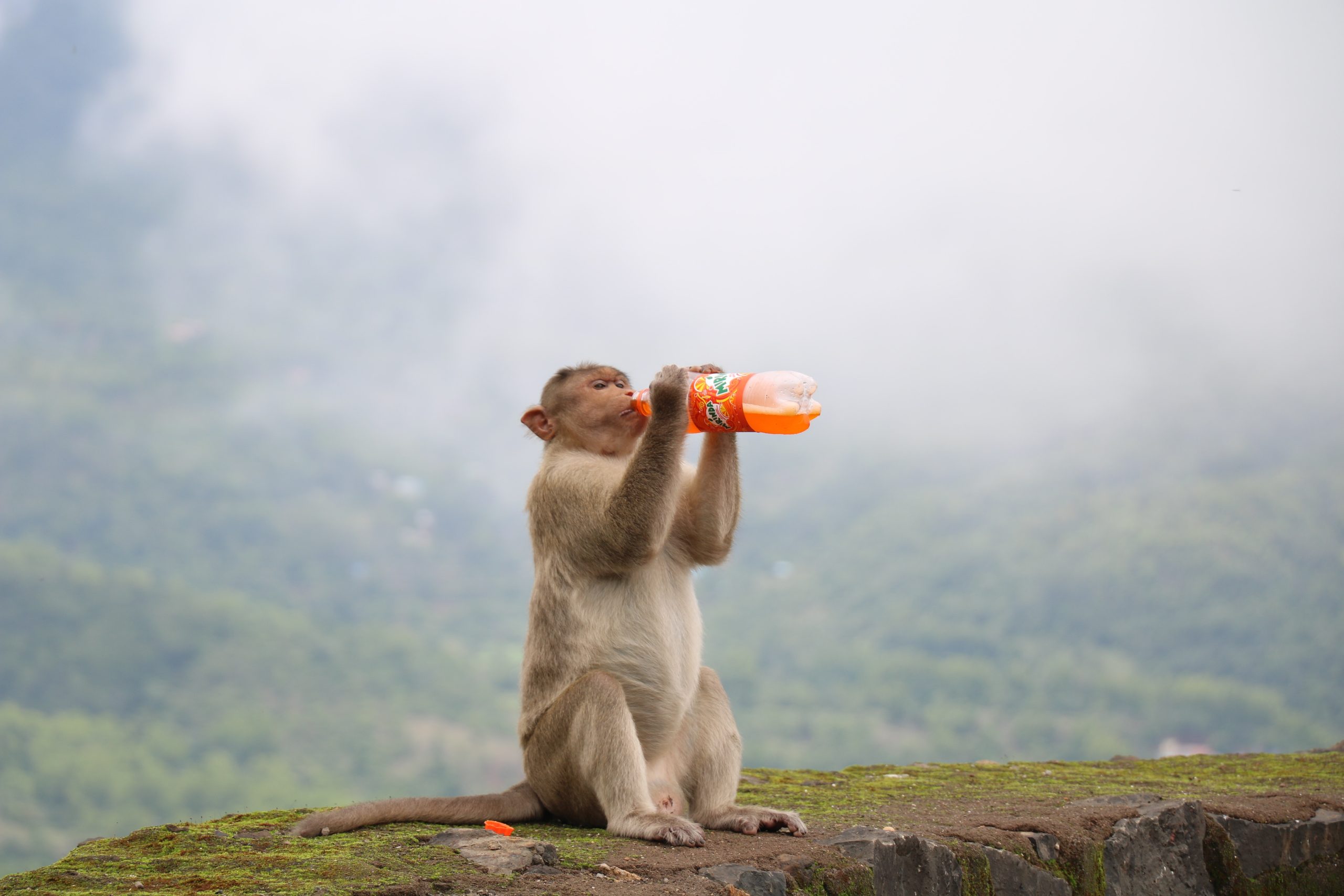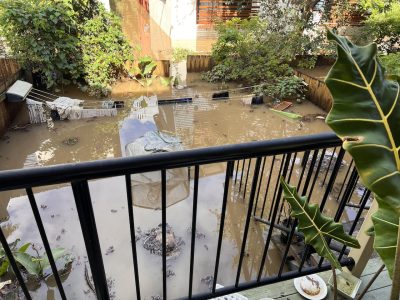
Sustainability isn’t your responsibility. . . until it is
In my opinion, practicing sustainability is easier said than done. People shouldn’t feel guilty for indulging their creature comforts. Whether it’s leaving your fan running overnight during a sweltering summer or soaking up the hot water from your shower for just a little longer during winter.
To put it lightly, shouldn’t I be allowed to live in the ignorance that I am doing my part for the environment by putting plastics in a yellow bin. Besides, if 70% of greenhouse gases are emitted by only 100 companies, why should saving the planet fall to you and me?

Photo from Unsplash
My journey with sustainability began when the topic of corporate greenwashing was taught to me in university. To learn that the ‘green’ initiatives of these billionaire companies were merely a mask for the eco wrongdoings they commit behind closed doors, was both a sobering and angering moment. Who would’ve thought that the ASX100 didn’t have my best interests in mind?
This didn’t deter me from stopping the sustainable initiatives I was already practicing. I still put my plastics in a recycling bin and brought my reusable shopping bags with me to the grocery store. But it didn’t implore me to explore new ways to adopt sustainability in my life.
However, my tune changed with the Brisbane February floods of 2022.
Live to be flooded another day
When faced with floodwater that destroys your home and threatens your life, there is only one thing you can do – flee.
In what was quite literally an overnight occurrence, I was forced to evacuate my home in the dead of night with only a bag of clothes, my phone, wallet, and car. Driving through backstreets to an evacuation centre, illuminated by only the headlights of cars on account of the power being out, with the battering of heavy rain on my windscreen. When I returned to my home the following morning, I found the Brisbane River at my doorstep. Worse yet, the water had risen into my small townhouse, destroying much of my furniture and belongings.

Flooded backyard | Photo by Jake Gitsham
Fine, I’ll do it myself
The experience of the flooding and the damage it left brought on something of a wakeup call and a realisation. It doesn’t take a genius to realise that the floods were a result of climate change, mostly caused by those previously mentioned companies. While I once believed that the role I had in mitigating climate change was a futile venture, living through a natural disaster allowed me to take stock of how I was also contributing to the climate. For if I did nothing, am I any better than the carbon barons I criticise?
Newly invigorated and ready to save the world, the biggest challenge was knowing where to start. More specifically, how do I quantify the impact that I contribute to the climate? A resource from the Global Footprint Network allows you to calculate your ecological footprint by measuring your consumption habits. It gives you an estimate of how many Earths you consume in a single year, and your overshoot day. For myself, I was consuming resources equivalent to 4 Earths a year, with my overshoot day being in March.
I was horrified, embarrassed even, but more so, I was quizzical as to what factors were contributing to this. Unsurprisingly, the biggest one was my consumption of animal products. No one likes being told what to eat, most of all a stubborn person like myself. To make the transition easier, I eased into it with one day of being meat free a week and aptly named it ‘No Meat Mondays’. This seg-wayed in to incorporating ‘Tofu Tuesdays’; then ‘Spaghetti Wednesdays’; until eventually I had a completely meat free diet. This was followed by other small changes such as cutting out traditional dairy and opting to packaging my food with reusable alternatives.
Silicone wraps | Photo by Jake Gitsham
The culprits are still at large
While implementing these kinds of sustainable changes is still beneficial on an individual level, it still begs the question as to how we can implore carbon emitting companies to adopt the same approach.
Luckily for myself, adopting a meat free diet does contribute to this debate. One study from Stanford University says that a plant-based diet can halt the increase of greenhouse gases by up to 30 years. However, the caveat is that this is only achievable if everyone participates; it still places the responsibility of saving the world on to people like you and me.
This has been, dare I say, the propaganda that has been told to make us feel responsible for the climate crisis. Measuring our carbon footprint was popularised by oil giant BP, the same one that has 18,700 gas stations globally, to divert attention away from their own carbon footprint and shine a light on yours.
While it’s true that my keep cup and oat milk isn’t going stop the next flood, it’s important to highlight an age old saying, strength in numbers.
Head of Communications at Greenpeace Australia, Nelli Stevenson, emphasises the need for a systemic shift in the conversation.
“We make a difference to work together to change the system.”
For example, if we want to reduce emissions by using cars less, we need to collectively demand better public transit. Build the solution by addressing the source of the problem.
Teamwork makes the dream work
Often, we forget that we control the market changes that companies respond to. We need to speak the language they know best. If people reduce their meat intake, then it’s no longer profitable, which means no return on investment.
It goes without saying that change won’t come without self-sacrifice, as one study points out that solving the climate crisis relies on changing human behaviour. Which means the decision falls to you and me. It’s up to us to make sustainability a habitual behaviour, to lay the foundations for a systemic shift, even if it is something as simple as meat free Mondays.
References
Global Footprint Network. (2003). How many planets does it take to sustain your lifestyle? Www.footprintcalculator.org. https://www.footprintcalculator.org/home/en
Griffin, P. (n.d.). The Carbon Majors Database. CDP. https://cdn.cdp.net/cdp-production/cms/reports/documents/000/002/327/original/Carbon-Majors-Report-2017.pdf?1501833772
Kilvert, N. (2022, March 6). It’s the elephant in our flooded east coast — and now’s the time to talk about it. ABC News. https://www.abc.net.au/news/science/2022-03-07/climate-change-floods-storms-weather-time-to-talk/100882016
Solnit, R. (2021, August 23). Big oil coined “carbon footprints” to blame us for their greed. Keep them on the hook | Rebecca Solnit. The Guardian. https://www.theguardian.com/commentisfree/2021/aug/23/big-oil-coined-carbon-footprints-to-blame-us-for-their-greed-keep-them-on-the-hook
Than, K. (2022, February 1). Could going vegan help reduce greenhouse gas emissions? Stanford Earth. https://earth.stanford.edu/news/could-going-vegan-help-reduce-greenhouse-gas-emissions#gs.f0q1ev
Williamson, K., Satre-Meloy, A., Velasco, K., & Green, K. (2018). Climate Change Needs Behavior Change Making the Case for Behavioral Solutions to Reduce Global Warming RARE KNOWLEDGE Sharing learnings, lessons and insights from behavioral science and conservation around the world AUTHORS. https://rare.org/wp-content/uploads/2019/02/2018-CCNBC-Report.pdf
